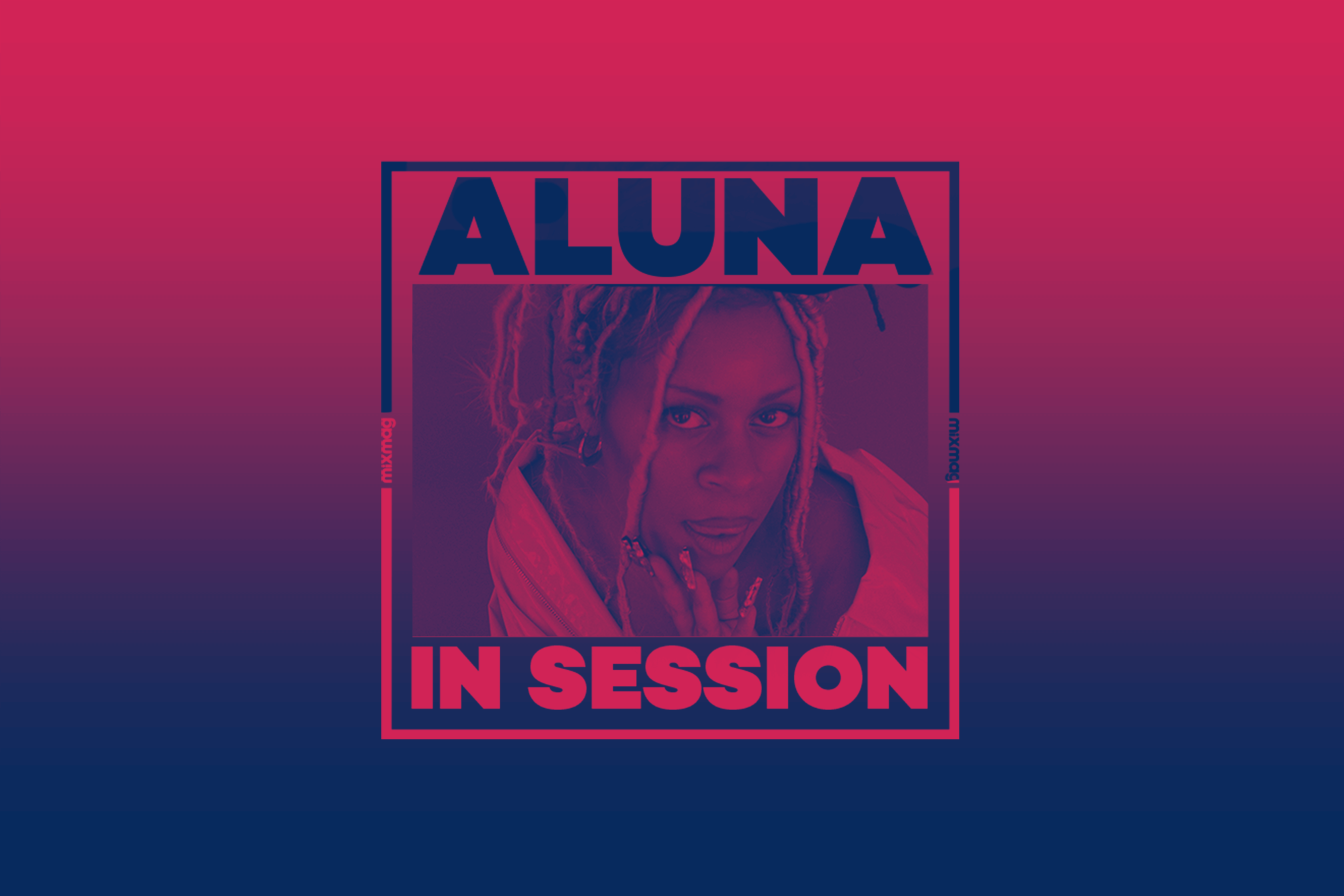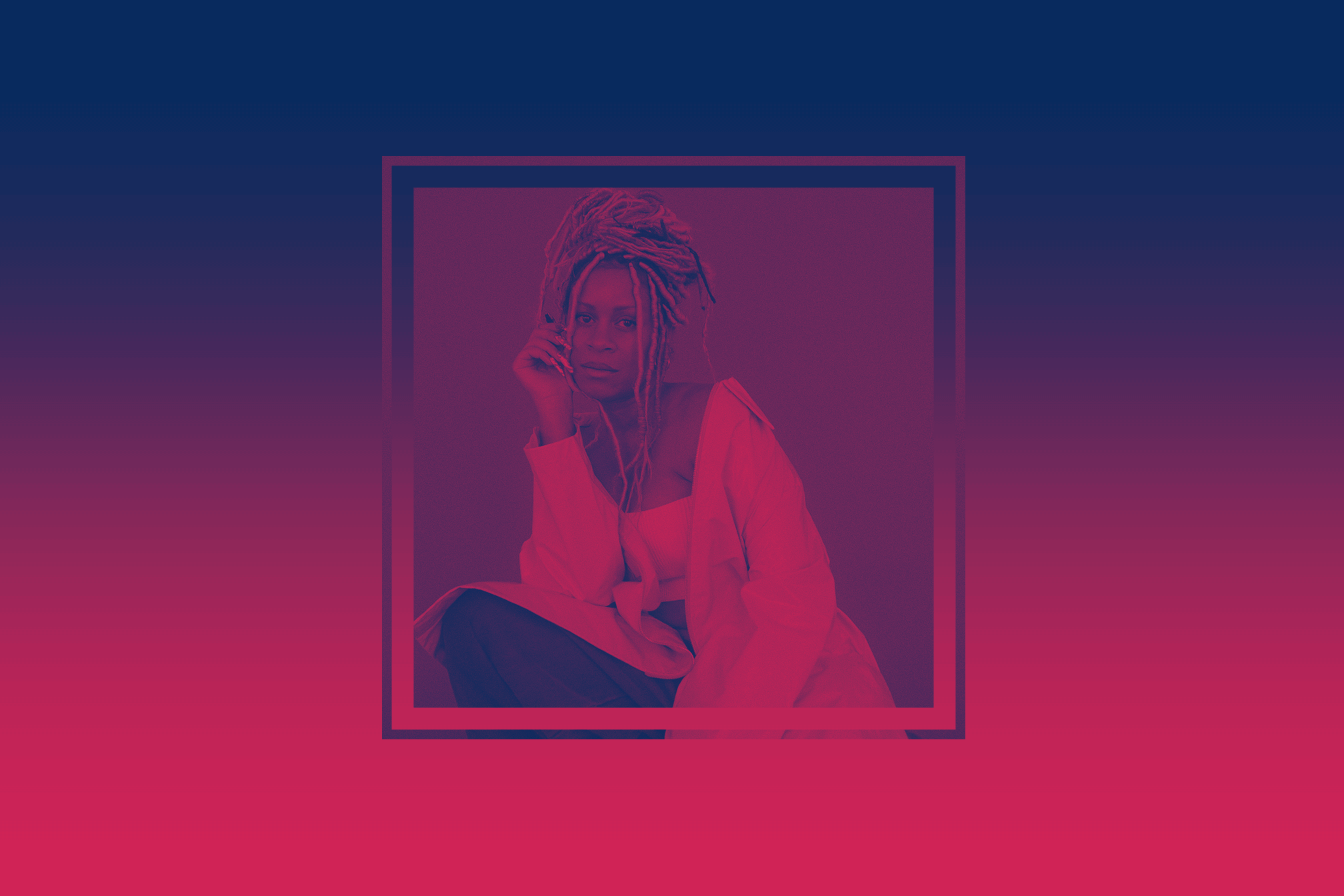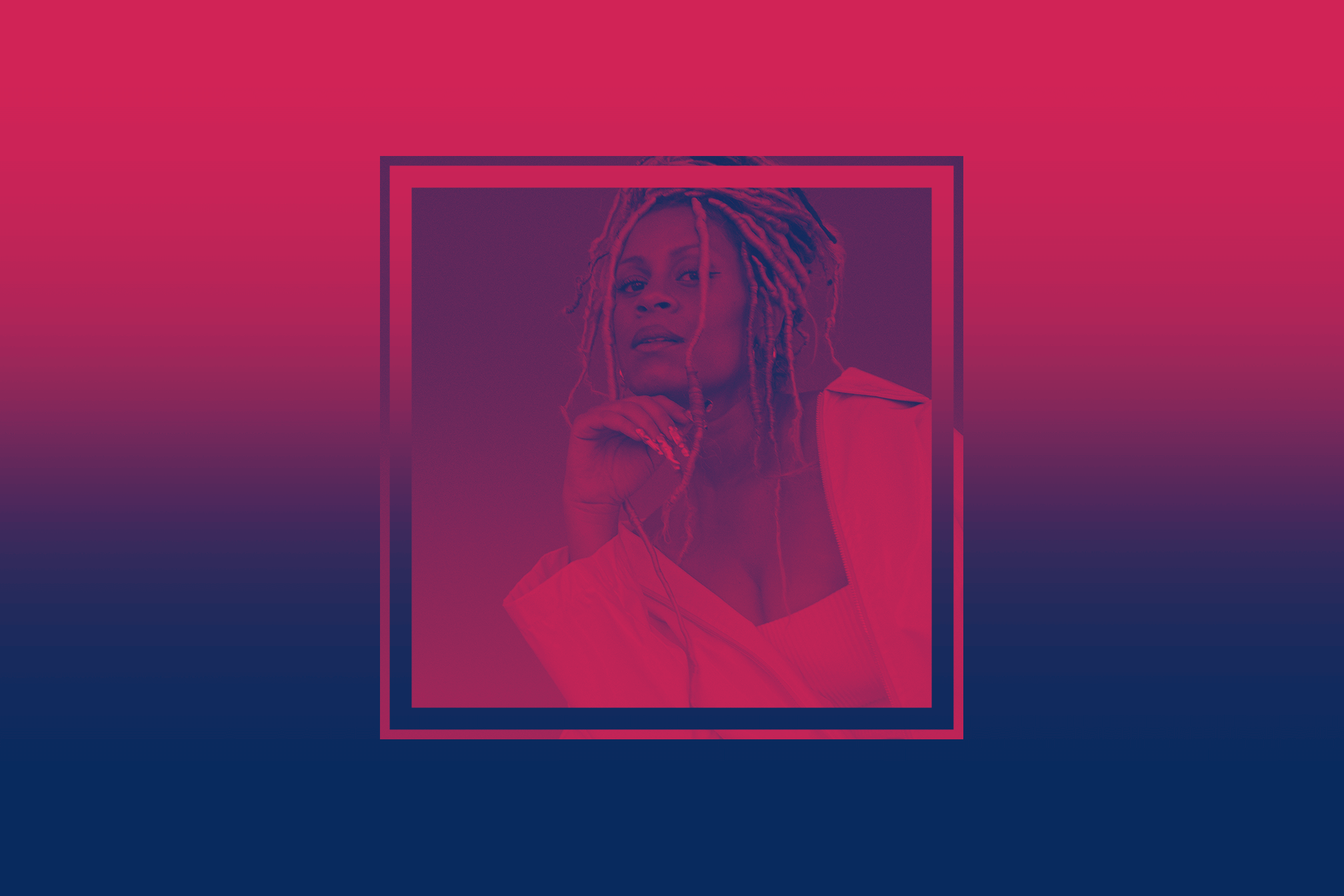 Music
Music
In Session: Aluna
Aluna shares an entrancing mix and speaks to Eva Coulibaly-Willis about going solo, amapiano and supporting Black communities in dance music
As we witness a renaissance in Black electronic music, the world is primed for an artist like Aluna to be flaunting her true colours. Beyoncé and Drake are of course notable in having converted to the thump of classic dance music, but they exist only at the tip of a fast-developing mountain of Black artists reclaiming their power as pioneers of these sounds. There remains work to be done, but platforms such as Black Techno Matters in Washington D.C., New York’s Dweller, and London’s Black Artist Database are working to progress Black voices and creativity that has been, to say the least, neglected.
Read this next: Why we started the Black Artist Database
After coming into prominence as one half of UK electronic duo AlunaGeorge, St. Albans-raised Aluna Francis has now established herself as a solo artist, and is propelling global electronic sounds into the future. Operating out of LA for seven years now, the vocalist has been expanding a niche in which American, British and African histories collide. Championing producers at the forefront of emerging and established genres, Aluna remains an accomplished collaborator, with her recognisable silvery tones characterising recent work with MK, Diplo, Jayda G, Kooldrink & Prettyboy D-O and Kornél Kovács. Yet fresh insights now add fuel to her extensive vocal and songwriting skillset, asserting her as a creative force in her own right. Aluna's 2020 debut solo album 'Renaissance' - the same title used by Beyoncé for her 2022 club-focused album - is a celebration of dance music's Black and queer roots, honouring history while powering through into the future with genre-spanning fusions and contemporary guest feature curation. Her In Session mix traverses hypnotic and energised sounds from across the African diaspora, providing us with an entrancing hour of atmospheric amapiano, syncopated rhythms and refined vocals.
What might it look like to see Black artists thriving in a dance music environment where we feel safe, visible and celebrated once again? Aluna’s answer to this could be found in the inauguration of her new, all-Black music festival, Noir Fever, soon to emerge in the US. Hit play on her In Session mix and read our conversation below.

It looks like it’s been a busy year for you! You’re based in Los Angeles now – how’s that been?
It's been pretty consistent. Obviously a lot of people come through LA, and there's a certain culture here where people are down to work and experiment in a really fluid way. There's a lot of energy for making new music. I've actually gotten into doing a few Zoom sessions, which is funny as I normally wouldn't have ever considered that. But the pandemic forced me to, and then I realised this actually works quite nicely for certain things, like songwriting. 'Forget About Me', which I released in January with Diplo, I wrote with Kelli-Leigh on Zoom. Same with the current single – being in LA with a producer, but then working with a writer in the UK is really good fun.
It’s interesting to see how the pandemic has opened up new ways of collaborating while we’ve been apart. As gigs regain their momentum, what’s changed?
It's interesting seeing the live circuit come slowly back to life – it's different. I just did a show in Denver which was so different to any festival I've played before. The vibe was very chilled, and I'm feeling that there's a growing desire for that across the board. After nearly three years, being indoors has worn us down in a way where we seek out a different experience when we're outside – something that is slightly closer to what we're now used to, like being at home and dancing in our bedrooms. I’m curious as to how I can accommodate that in a rave setting, and I feel like amapiano is the perfect antidote for feeling like you're out clubbing, but also like you're relaxing.
Read this next: Aluna: "I get asked daily to be exploited by a white DJ"
Absolutely – that hypnotic amapiano sound is really prevalent in the mix, which also features your recent track 'Nowhere To Hide'. What’s drawn you towards the genre?
I would describe amapiano as quite a minimal form of music – often you can hear that there are few instruments, but they're used in a very particular way. It feels like the producers who make it are almost in this meditative state: it's got an enormous amount of energy in it, but it's really simple. I wrote 'Nowhere to Hide' in London with Higo and Prettyboy [D-O] and that was a very different experience. I've kind of had to rework my methodology – instead of aiming directly for the end result, I take a different route, and let the arrival be something that I can't necessarily plan. It was really nice being able to send Kooldrink a vocal over a beat that was very, very different, and have him sort of rework it. Kooldrink has a really broad production background, but is one of the pioneers of the genre in South Africa, so he's able to include the traditional sounds and marry that with vocals, which is a very particular art form. That kind of nailed it for me.
Amapiano seems to be having a ‘moment’ in electronic music. It’s refreshing to see a Black electronic genre gain so much traction as it moves out of South Africa across the world.
Yes, and initially, when exploring genres from the African diaspora, certainly afrobeat was a go-to. I always love to mix afrobeats with house and techno – I think they go really well together, and they create this bridge between African and European/American dance music. It was interesting with amapiano, because it’s really far away from fast afrobeats, or techno – it's usually around 110 to 114 BPM – it’s a completely different sound. But when I started to test out 'Nowhere to Hide' before we released it, I was like, wow, people are getting this! We're all ready for amapiano, and I can see that it's going to go global, very, very fast. With that we're going to have people who weren't involved in creating the genre taking the sound and basically crossing it over. So it’s really important for me to celebrate the people who created the genre, as early and as consistently as possible. When I was making the track, I wanted to go straight to the source, and I think that people should be doing that whenever they discover a new genre: working with the producers that created the sound and including them in the globalization and celebration of it.
Absolutely, and particularly within dance music, pioneering Black artists haven’t always been given the credit. How was it emerging onto the scene at a time when we weren’t all that recognised?
I kind of saw the process of getting into the music industry as something that would have to be a creative exploration before committing myself to any particular lane. One of the things I did know is that as a Black woman in the UK, I certainly didn't fit any of the boxes that I saw us in. Generally, I only saw Black women in R&B, and maybe some soul, or if you were like, a super genius you might be able to be a grime rapper or something… there wasn't much else going on at the time. So I said to myself, ‘Okay, I'm gonna have to first of all explore all of the music that I love, even though I know that as a Black girl I will, one-hundred-percent not make it in that genre.’ Early on I was in guitar bands, indie bands making all kinds of noise, fully in the knowledge that no one would ever sign me as a Black female indie rock artist. But I just wanted to do that for myself. Then I started to explore some very avant-garde electronica in a duo called My Toys Like Me, and that's where I started to develop my voice. When I was first introduced to George [of AlunaGeorge] we really hit it off. Our studio process was very intertwined, and though I was mainly on vocals and songwriting with George on production, we would discuss our ideas intimately: down to this kick drum, that space sound.
Read this next: The exploitation of Black women vocalists in house music
What did that ‘exploration’ phase teach you?
Well by the time I decided to go solo I had a really well-rounded skill set that I could take into the studio, mixing the different dance music genres that I'd always been interested in. But although I had achieved the goal of making great music, I had not achieved being visible. There's a difference between the profile of AlunaGeorge and the features that we were known for in a more commercial sense, and in those features I was disembodied from my Blackness – my identity. Coming into the industry I’d already felt the pressure to erase my Blackness. I’d grown up in a town where I was the only Black person; I’d have my hair natural but I got bullied for it, and so the shame of being Black was a constant thing. When I started to make music, I started to straighten my hair, which was a big thing; and so the next erasure of my Blackness was to literally not even be visible. I think I was so well trained to be in the background, and to not take up space, that it wasn’t something I pushed against

You released your debut album as a solo artist, 'Renaissance', in 2020. How did you translate that desire to be visible into your solo work as an electronic artist?
I started to consider my musical goals and my musical development. Me and George had gotten into a pocket where we could write in any scenario with any amount of time. Our working method was so fluid and so well versed that it wasn't even a challenge anymore. I decided I needed to challenge myself because that's what music has always done for me. As soon as I started writing I realised very, very quickly that it was going to be a dance album, but I was still doing it with huge impostor syndrome in the UK. I've heard that this is a common experience, but I believed that dance music was white! And so on these features that I'd done in the past I’d felt like a guest – not someone who should take up space and visibility. It wasn't until I was very, very deep in the process that I started to discover the Black history of dance music. Suddenly I was like, ‘so you're telling me I feel like a guest in my own genre?!’ I had to get to the bottom of it, and that really fuelled me. It gave me the fire for the next part process.
I remember feeling like that too! Being Black in dance music, whether as artist or an audience member, can be really isolating. How do you think we can come together to reclaim our place in the scene?
I think that sharing our stories has been really valuable. It takes so much courage to be vulnerable in the public eye about something that is so unspoken, so hidden in the shadows. But it's really important for the Black community to hear each other's experiences. I started a Black-girl rave-support group, and the effect that it had – in just having each of us go round and talk about what it was like to be the only Black girl at a rave – had us crying with relief! The power was palpable.
Read this next: How the Dance Music Industry failed Black Artists
That’s amazing. And of course, you’ve been working on Noir Fever since. Were those experiences part of your motivation to build a music festival with an all-Black line-up?
I knew that in having an all-Black musical line-up there were two things that would happen: one is that when those artists saw each other and got together, there would be a sharing of a collective experience, that had previously been an individual experience, and that would be healing for us all. The second thing that would happen is the audience would see what’s possible when electronic Black artists are comfortable, which is not something you will see very often. If you are seeing a Black artist in a sea of white people, you can guarantee that that's having an effect on that artist. We still don't really know what that effect is, or how that could affect their performance, but we certainly haven't seen them comfortable.
We the saw festival’s debut planned for this summer stalled due to the financial issues of events startup Pollen. How has the Noir Fever concept adapted to such challenges early on?
Well, I think that Noir Fever can almost be described as a cell network that is intent on sharing stories and connecting people. Connecting groups that are isolated and elevating those experiences, with the sole purpose of making it accessible to a larger Black audience. It is kind of crazy because we’d been working with a company that was going under due to malpractice and wasn’t a genuine supporter of the project. That taught me so much. But because Noir Fever wasn't even fully built yet, I was able to integrate all of that learning into the foundations of the endeavour. In its next evolution Noir Fever is going to be about supporting smaller Black dance communities and elevating them, telling their stories, and then connecting them with other groups. I have been in communication with a few really excellent communities, and I can't wait to start sharing what we have in store.
You’ve made an interesting choice to host the festival in New Orleans. What is it about the US that you’re drawn to for an event like this? Might we expect something similar in the UK?
I think the choice to do it in the US is more about the erased Black history of dance music in this country, and the fact that the diversity in the electronic dance music scene here is at a pretty dangerously minimal level. The decision to do it in New Orleans was really a cultural one, because New Orleans has so much rich history, such as with Jazz Fest that they've been putting on every year. They know how to create a cultural phenomenon. Getting an opportunity to celebrate a genre that has been taken away from us, in a city like New Orleans, just felt very iconic.
If I'm honest, when it comes to the UK I feel like I'm out of the loop in some ways! I think that in Britain particularly, the conversation about race is extremely minimal. It is almost as if, collectively, we want to believe that we have moved past racism. I felt completely stifled as an artist, and if your parents are immigrants it often feels like the only way you can claim to be British is to live there. But obviously, since I left, we're seeing PinkPantheress, Shygirl; we’ve got Nia Archives and Sherelle. I appreciate that something must have changed in the UK in order for those artists to thrive. Maybe what I'll do first is just come back, catch a vibe, do a few shows and see what's up, because I know I have something really special to offer. But I also just want to support – I don't always want to be the centre of attention. I want to support what's already going on in London, and maybe come back with a fresh perspective.
Eva Coulibaly-Willis is a freelance writer, follow her on Instagram
Tracklist:
1. Khuza Gogo - BlaqNick, DBN gogo, MasterBlaq
2. Ameno Amapiano Remix - Goya Menor, Nektunez
3. Vula Mlomo - Musa Keys
4. Bambelela - Dalas, Gflow, Lakwister, Mphushana
5. Deep Space Six - Maestro
6. iY-Yi - William Last KRM, Takunda
7. Nowhere To Hide - Aluna, Prettyboy D-O, Kooldrink
8. Gqoz Gqoz - Busta 929
9. Selema - Loui, Musa Keys
10. Getting Late - Tyla, Kooldrink
11. Phone Yam - Alfa Kat
12. NdiKuze - Focalistic, Major League Djz
13. Hayi - Felo Le Tee, Uncle Waffles
14. Samsokolo - Tee Jay, Rascoe Kaos
15. Ungangi Bambi - Khanyisa, Mr Jazzi Q
16. All of This - Jorja Smith, GuiltyBeatz, Major League DJz
17. Blade Runner - The Micronautz
18. Ngimnandi - Boohle
19. Sdudla - Caltonic SA, John Bravo
20. Gold Teeth - Bonton
21. Guataqui - Flo Dosh
22. San Juan - Sebastian Rivero, Calussa


